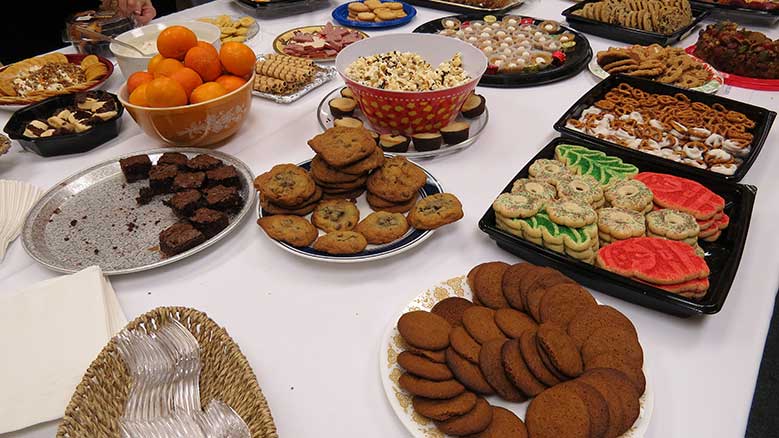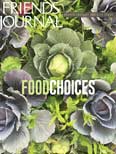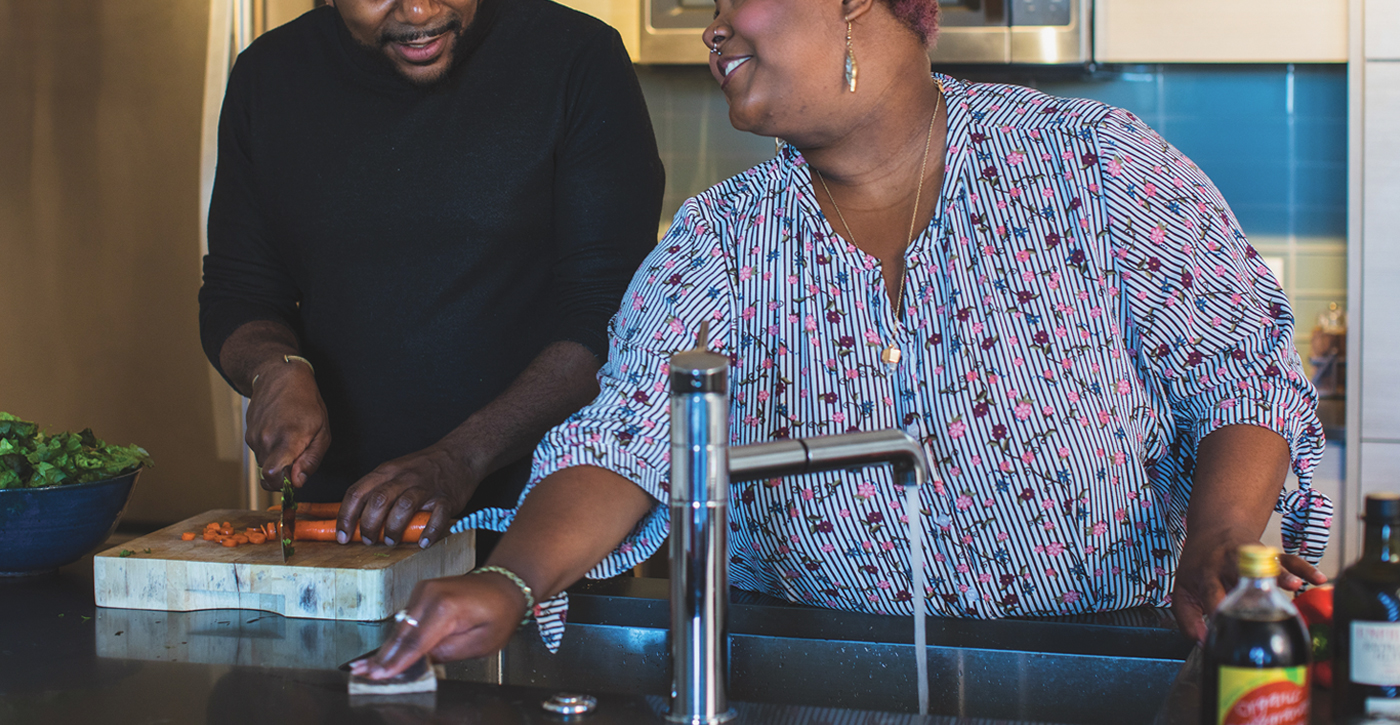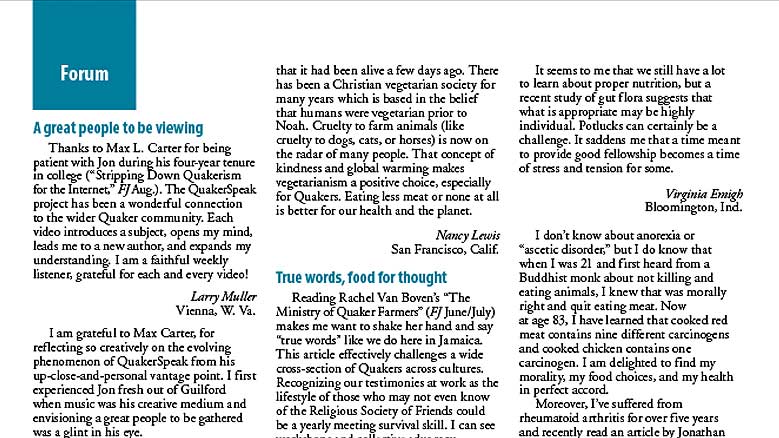
Due to post-anorexia side effects and some sort of not-yet-diagnosed genetic inflammatory condition, I think about food choices all the time—at least as often as I did when I was under the influence of what we call “anorexia.” In terms of names, I generally prefer the simpler, more accurate term: “ascetic disorder.”
Now that I no longer have an ascetic disorder, or now that I merely have a regular, run-of-the-mill “over-controlled personality,” I find myself asking different questions as I survey my food options; my questions are practical now, no longer ideological or goal-driven. I tend to think things like, “Will this cause me pain? How much pain? Will it cause me so much pain that I have to cancel my plans today?” I usually don’t know the answers to those questions. There is, quite unfortunately, no clear pattern, but there are a few safe foods, and significantly, all of them are deemed poor choices by every expert, blog post, and diet plan.
I was going to say that I am less concerned now with whether the foods I eat are good and pure and acceptable to others than I was before, but that’s not true. It is a strange and admittedly difficult transition: going from being a model of virtue—or maybe a parody of our culture’s obsession with conflating eating with virtue—to the person who will only eat white bread, white rice, meat, potatoes, and various treats.
I have a hard time eating in community, in part because I worry there won’t be easy-to-digest foods but mostly because I am afraid of being judged—and perhaps a little afraid of how I will react to that judgment. I understand my anorexia as a rite of passage, and as such, it should be impossible to go back; I am a new creation. Still, I think I will always be afraid of relapsing.
Part of recovery from anorexia is deconstructing the message that certain foods and eating habits are more virtuous than others, and I have been laboring internally to come to terms with the idea that it’s okay if the foods I eat are impure, unclean, not healthy. But it is nearly impossible to do this successfully in community—especially, I have found, in thoughtful, spiritual communities.
I have a hard time eating in community, in part because I worry there won’t be easy-to-digest foods but mostly because I am afraid of being judged.
Dhere is a weekly common meal at my seminary which I rarely attend for fear that there won’t be safe options, fear of judgment, and fear of self-judgment. They do a great job of practicing inclusion by providing vegan and gluten-free options, but you can’t really expect anyone to offer a dairy-free, fiber-free, high-caloric option, and I have learned that neither can you really expect people not to stare as you fill your plate with the plainest, least nutritious choices available. To be clear, I do not have any bad experiences to speak of within my seminary community; I have yet to really risk this particular kind of vulnerability with them.
From an outsider’s perspective, my choices probably seem thoughtless, instinctual, or uneducated. I assume this because of the sheer number of times people have reminded me of the rules—as if I didn’t already know them, as if I hadn’t been indoctrinated with them my whole life.
I remember meeting with a thoughtful Friend at a coffee shop, and mid-conversation, she critiqued my beverage choice. I am certain that she didn’t mean any harm by it, but it was harmful. She knew vaguely of my health issues—mostly just that I had them—and she effectively blamed those issues on my choices, like the beverage before me, a bottle of watermelon-flavored lemonade. How could I expect to feel good when I had chosen to consume something so clearly unhealthy, she wondered aloud.
I could have explained, I suppose. I could have told her that I didn’t even like lemonade, that I had woken up feeling so awful inside that I couldn’t eat anything, that I was weak and shaky as a result, and that I had intentionally chosen “empty calories” instead of coffee because I knew that was the only way I would survive our meeting.
I didn’t say any of that to her first and foremost because I shouldn’t have to, but I also knew that explaining would have resulted in some level of tension. People love to inform me that eating more greens will cure all of my problems—along with cutting out sugar and processed carbs and maybe meat and also trying acupuncture. Again, I suppose I could explain to each person individually that anytime I eat a salad, for example, I am inflamed for days—literally, days. But should I have to?
People love to inform me that eating more greens will cure all of my problems—along with cutting out sugar and processed carbs and maybe meat and also trying acupuncture.
Ultimately, I am writing about invisible disabilities and the ways that the necessary discourses surrounding the politics of food harm people who cannot adhere to those values for any number of reasons, whether or not they hold those values in their hearts. I am not suggesting that ethics and food never coincide, that they have nothing to do with each other, but I am suggesting that morality and food choices should have nothing to do with each other. Or, food choices should never reflect individual virtue.
When we eat together, it is important that we remember the possible ill effects of worrying too much and talking too much about our food choices. Several researchers have noted a connection between eating disorders and what Simona Giordano calls “ordinary morality.” Giordano notes also that there is a “moral logic” to anorexia, and suggests that both the existence and the increasing prevalence of eating disorders “force us to accept that ‘morality,’ ‘rightness,’ and ‘goodness’—if taken seriously—may cause great psychological harm.”
What we should talk about when we talk about food choices are the larger, systemic issues at play. I don’t think it is our concern what individuals are eating. I have heard numerous people—Quakers, quite often—complain that the underprivileged people they’re trying to help just don’t want to cook and eat fresh fruits and vegetables. I suspect that if they truly stopped to consider the others’ context, they would see that it’s not only a matter of learning how to cook or acquiring fresh foods. Where would they find the time—much less the energy—when they are being crushed in body and spirit by capitalism?
Most of our food ideals are, for most people, impossible to live up to within our current system. I am not suggesting we shouldn’t try, especially if that is what we feel led to do, but we also need to make space for others to not be where we are: to not be as privileged as we are, whether that privilege is socioeconomic or more along the lines of what I like to refer to as “digestion privilege.”
As we work to line up the whole of our lives with our values, as we pursue integrity and simplicity and care for the earth, I ask that we consider rethinking and rearticulating our focus on individual food choices.






I really appreciate your article and for pointing out so clearly how we can’t ever know the reasons for another’s choices unless we take time to get to know them, but how easily I can judge another because of my own opinions and projections. Another deep and salutary lesson that I’m very grateful for. Thank you.
Really appreciate this thoughtful reflection regarding diet and food choices. YES, I am always considering what will digest well, as I have lots of digestion complications. Thank you for bringing these matters into the light
Thank you, Caroline, for allowing yourself to be vulnerable in telling your truth. I have learned a lot from your words. Even though I think don’t usually comment on people’s food choices (except, perhaps, for my kids),
I will, now, be more aware and therefore more sensitive and careful in discussing food choices.
Your thoughtfulness kept me reading to the end; typically I read a couple of paragraphs and then go on to another article.
Thank you.
I would like to suggest that we consider rethinking and rearticulating our focus on individual exercise choices. There are many of us who would love to be able to “just go for a walk” but have disabilities which make exercise in its common forms impossible. How often we are informed that we will be more prone to cancer, heart disease, stroke, diabetes if we don’t get the recommended exercise. I wish I could. I try to tune the dire warnings out but still, it grates.
It seems to me that we still have a lot to learn about ‘proper’ nutrition, but recent study of gut flora suggests that what is appropriate may be highly individual. Pot lucks can certainly be a challenge, sometimes requiring eating just what one brings. It saddens me that a time meant to provide good fellowship becomes for some a time of stress and tension.
Ms Morris argues that underprivileged people can’t make good food choices when “they are being crushed in body and spirit by capitalism.” I wonder what economic and political system, she would recommend? Seems to me Ms Morris argues for freedom of choice in one’s diet without interference from others, no matter how well meaning. What other economic and political system encourages individual freedom to choose?
I agree. Well said. Thank you!
I don’t know about anorexia or “ascetic disorder,” but I do know that when I was twenty-one and first heard from a Buddhist monk about not killing and eating animals, I knew that was morally right and quit eating meat. Now at age eighty-three, I have learned that cooked red meat contains nine different carcinogens, and cooked chicken contains one carcinogen. I am delighted to find my morality, my food choices and my health in perfect accord. Moreover,
since I’ve suffered from rheumatoid arthritis for over five years and have very recently read an article by Jonathan Otto recommending eliminating gluten and sugar. Almost a month later, my rheumatoid arthritis symptoms are almost gone. I conclude that I am allergic to gluten and sugar.
In other words, although I sympathize with Caroline Morris’ eating problems, I totally disagree with her thesis
that food and morality are not connected, and that one should ignore the latest research on causes of medical problems. The right food is fundamental to good health. And the wrong food is fundamental to serious health problems.
Ellen Rosser, Ph.D.
I like this essay a lot, and everything she says makes sense to me. I hope it raises awareness in the “food police” about the effects of making suggestions to other people about their food choices. which are and always should be personal, private decisions. No one knows how anyone else’s body works or feels.
Thank you!
Your article is such a good reminder for me, Caroline. Opinion, others and my own, can be destructive even when the goal and effort is toward being loving. I have to keep reminding myself of two things: there are two kinds of business- my business and not my business. And: the world is changed by my example not my opinion.
It is with interest and empathy that I read your writing and understand your predicament. Quakers, I find, having been one from birth, are quick to criticize and slow to commend. What we choose to eat is a more visible activity than our actions toward peace or reconciliation. Therefore it’s in your face, literally, and therefore open for comment. Particularly disturbing to me are the political messages given with fervor during Meeting for Worship; those people are rarely eldered. What comes out of our mouths is more interesting and more important to me than what ever goes in. Caroline, stay strong and do as your heart leads you; my support for your choices is, I hope, clear and concise.
Hai detto bene, il cibo deve essere per il corpo e la mente un fattore che possa nutrire, basta essere semplici nelle scelte senza avere ingordigia. Grazie
Please excuse my low level of asceticism or anorexia knowledge. With a farm background and mother (10th of 14 children) who was a professional cook, hearing many comments on the thousands of different foods and sharing of recipes has been very common in my life. Similar to Friends teaching children indigenous to North America in the 19th Century, my background in education, construction, and business, doesn’t provide all the comprehension needed to discern or construe a solid support in what you go through.
However, with epilepsy, aphasia, and impaired left arm, a little understanding of others low discernment of your life experience, in their comments, is felt. May the strength of your inner light carry you in hearing these undesired criticisms or judgments of what you consume.
This essay was really fantastic and struck an incredibly personal nerve. As someone who struggles with an eating disorder and digestive issues themselves, I’ve experienced this kind of anxiety first hand.
One resourcee that I’ve been looking at recently that someone reading this may want to explore are the podcast “Food Psych” with Christy Harrison, which deals with this kind of “food police” mentality. Also, check out the book “Fearing the Black Body: The Racial Origins of Fat Phobia” by Sabrina Strings. Navigating the historical bases of these conditions really helps to unravel the “why” and has been personally helpful in my recovery
Amazing how often people feel that their food choices are also right for others! While my husband was dealing with colitis my father was convinced that eating a ‘proper’ breakfast would solve all his problems!
Wow. I am struck by how easy it is to miss another’s reality. Thank you for the opportunity to open our eyes a little wider. I wish you well in your efforts to get what you need.